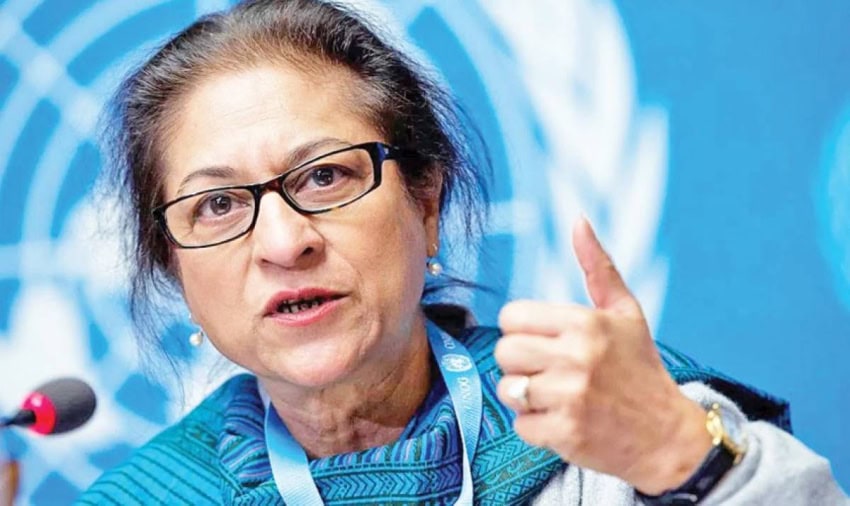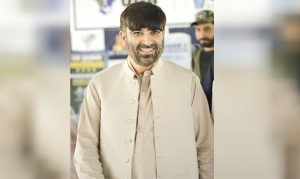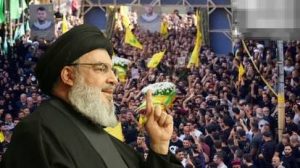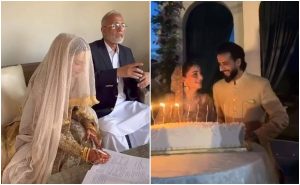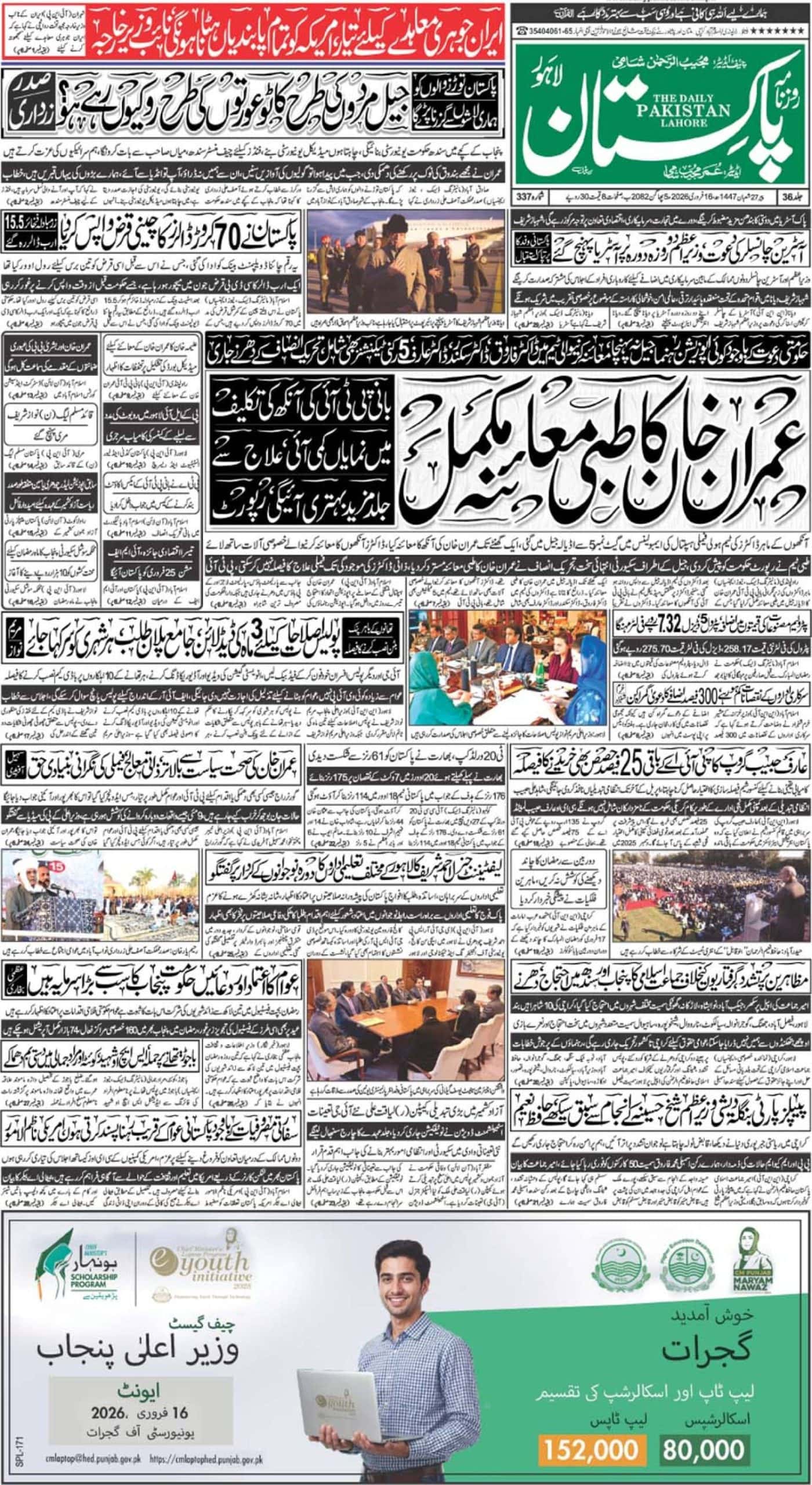Asma Jahangir was a voice for voiceless, oppressed, marginalized, deprived, wretched, helpless and hopeless in immensely unjust, biased, chaotic and disorganized Pakistani society. Irrefutably, she was an individual who was a replica of freedom, justice, equality, democracy, women empowerment and Human rights.
Asma Jahangir was born on Jan. 27, 1952, into an affluent family in Lahore. She studied at the Convent of Jesus and Mary and received her bachelor’s degree from Kinnaird College in Lahore. She received her law degree from Punjab University in Lahore in 1978.She emerged into Pakistan’s Politics’ foray vehemently in 1969 by participating in a women’s march to the residence of the governor of Punjab and clashed with the Punjab police bravely. During the rule of Gen. Muhammad Zia-ul-Haq, she was put under house arrest in 1983 and later also imprisoned when she started campaign for women’s rights and democracy.
Unanimously acclaimed, Asma Jahangir was incorrigible, dauntless and unyielding who was never deterred by any military dictator or despotic power. She was nationally and internationally acknowledged and recognized as Pakistan’s leading and renowned human rights lawyer, social activist and an outspoken critic of the country’s powerful military establishment and callous elite class.
The fact remains established that Asma Jahangir was known for her steadfast and uncompromising criticism of the military establishment, a cause for which she was both revered and reviled in Pakistan and around the globe. She was out on the streets leading protests against military dictators from the late 60s onwards, she had been arrested and tear gassed countless times but she never yielded against any ruthless powers and continued practising her convictions.
In Pakistan, a country recognized and known globally for its tenuous civil society, and one which has seen several years of tumultuous military regime change, Asma Jahangir was an outspoken critic of military dictators General Zia-Ul-Haq in the 1980s and of General Pervez Musharraf in the 2000s. Standing heroically in Pervez Musharraf’s despotic era, she also faced every atrocities including ninety days House rest for the noble cause of restoration of democracy. She fearlessly took up a whole spectrum of cases which many in the legal fraternity were too afraid to touch, defending Christian men accused of blasphemy, missing people case, journalists abducted by the military and women threatened with death by their husbands and families.
During General Zia-Ul-Haq dictatorial era, she protested strongly against Hudood Ordinance, generally perceived, an attempt to bring Sharia law into Pakistan legal system. In fact, at the same Woman Action Forum, she continued protesting and ultimately she made her the face of the feminist movement of Pakistan. Probably, she voiced against the ruling military dictator who attempted to mix religion and law just for his vested interests. It’s quite paradoxical that she was respected and statured internationally but she also endured bitter criticism from the military and right-wing nationalists in Pakistan. This criticism also resulted in a severe attack at her for advocating peace with India, and was often accused of being an Indian agent or a traitor. In our narrow and traditional society, she was also made a target of campaigns on television and social media for her sarcastic and harsh criticism on the country’s military and its intelligence agencies. Some of Pakistani Anchors and political Analysts also tried to accuse her of looking the other way when it came to the corruption of two mainstream political parties, the Pakistan People’s Party and the Pakistan Muslim League-Nawaz. They opine strongly that she was single-mindedly focused on criticizing the military and ignoring the political Giants’ massive embezzlement.
Being a human rights activist, she also worked for the rights of bonded labourers, especially brick kiln workers across Punjab and remote areas of Sindh. Being leading woman rights activist, she tried to stand unshakeable and resigned for the women rights throughout her career. She was the first female leader of the country Supreme Court bar association, and, along with her sister, set up the country’s first free legal aid centre “AGHS” as well as the Human Rights Commission of Pakistan the most prominent independent monitor of human rights abuses in the country.
Asma Jahangir devoted her 40-year long career fighting in and out of courtrooms to defend democracy and justice, advocating loudly and passionately for women and minorities in her country. She showed fierce determination for fighting for human rights in Pakistan was exemplified by a series of firsts. She was repeatedly threatened by the country’s militant religious right whom she criticized loudly and often. A champion and custodian of human rights, she was unafraid to speak loudly against those attacking minority religions and women.
Asma Jahangir attained innumerable awards and accolades for her invaluable contribution for relentless service for the advocacy of the wretched and underprivileged section of the society by all means.
She has constantly raised the issue of “missing persons” in Pakistan and calling for grilling of intelligence agencies. She was critical of the Supreme Court for “judicial activism” and also criticised the apex court for disqualifying Nawaz Sharif from the office of prime minister.
Some of her distinctive contributions are as follows:
- Nominated for the Nobel Peace Prize in 2005 being a staunch defender of human rights and women rights, and a pro-democracy activist
- Awarded UN Human Rights Prize 2018
- Groomed and trained as a lawyer and worked in Pakistan’s Supreme Court from age 30
- Awarded Hilal-e-Imtiaz and Sitara-e-Imtiaz in 2010. She was posthumously awarded the Nishan-e-Imtiaz Pakistan, the top civilian award in the country in 2018.
- A critic of the military establishment’s Policies and was Jailed in 1983 for pro-democracy activities
- She moved to Geneva and became the vice-chair of the Defence for Children International in 1986.
- She co-founded the Human Rights Commission of Pakistan in 1987
- Became HRCP ‘s Secretary General until 1993 when she was elevated as commission’s chairperson
- Freedom Award in 2010
- Remained under house arrest in 2007 for opposing military leader to remove Supreme Court chief justice
- Co-founder of the Human Rights Commission of Pakistan and of the first free legal aid centre in Pakistan
- Co-founder of the Women Action Forum, set up to oppose law that reduced a woman testimony in court to half that of a man
- The first female leader of Pakistan Supreme Court Bar Association
- Winner of several awards including the Unesco/Bilbao prize for the promotion of a culture of
- Human rights and the French Legion of Honour
- Served as UN special rapporteur on freedom of religion and on human rights in Iran
- In 2014 Ms Jahangir told AFP news agency she had seen changes in the perception of human rights in Pakistan and West.
- Received the Right Livelihood Award from Jakob von Uexkull (R) in Stockholm, Sweden, December, 2014.
- She was elected as the 13th President (first female) of the SCBA in 2013.
- She was a U.N. rapporteur on human right and extra judicial killings.
- She was on Time magazine’s list of 100 the most influential women.
- She was also awarded a United Nations Educational, Scientific and Cultural Organization (UNESCO) prize for the Promotion of a Culture of Human Rights and an Officer de la Legion d’ honneur by France.
- Ramon Magsaysay Award
- Roland Berger Award (Germany) in 2013
- Martin Ennals Award for Human Rights Defenders (1995)
- She defended minority Christians charged with blasphemy, an offense that under Pakistan’s controversial law carries the death penalty.
Apart from her matchless struggle, Asma Jahangir authored four books and several research publications. She also received honorary Doctor of Law degrees from the University of St. Gallen, Switzerland, Queen’s University, Canada, Amherst College, USA, University of Zurich, Switzerland, and Simon Fraser University, Canada.
On 11th Feb. 2018, Pakistani prominent Pakistani human rights activist Asma Jahangir died at the age of 66. She reportedly suffered a cardiac arrest and died at a hospital.
Apart from some lingering and unresolved controversies, Asma Jahangir will be remembered for her teeming mind as Law & Constitution expert, human rights activist.

